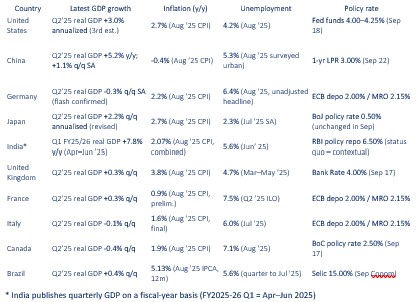The world has already ended: you just haven’t noticed yet
- Mark Williams

- Jul 14, 2020
- 4 min read
The UK Chancellor of the Exchequer, Rishi Sunak, is generally thought to have had a good crisis. He was quick to offer state aid to furloughed employees and to extend welfare to the newly unemployed, though the significant “gig economy” in the UK, numbering millions of self-employed people, was largely overlooked.
His latest economic stimulus removes temporarily the tax people pay when they buy and sell homes. He has also offered government discounts to people eating out in August. The total cost, adding around GBP 30 Bn to national debt, will be recovered later on through higher income taxes and consumption taxes. So this generosity is only a loan, minus the costs of administering and recovering it. As services make up such a large part of the UK economy, the correct political tactic is to get services moving again. This policy has been replicated around the world. But this policy shows a total lack of imagination and demonstrates that the politicians have their heads stuck in the sand when it comes to recognising that we can’t go
back to normal.
Survey after survey from around the world has shown that people have not missed travelling by car, train, bus, ship or plane as much as they thought they might. Once the spell of marketing was broken, many people found that the slower pace of life enforced by Coronavirus was preferable. The fall in the sale of passenger vehicles, certain consumer goods, fashion textiles and non-essential foods (barring alcohol) in supermarkets has been noted around the world. What is increasingly obvious is the growing sentiment among consumers that they won’t be taken in by the marketing any more. Western consumers had already seemed to reach a sort of consumerist ennui – how many white goods and flat screen TVs can one own?
Surveys also show that many people have found working from home to be as productive as working in an office. Many employers agree. Some employers have missed certain staff so little that they have fired them or replaced them with algorithms. Essentially anyone who previously commuted to an office building to sit in front of a screen should now have the option of working from home (or the nearby coffee shop, or library, or wherever) at least some of the time. Even the transport authorities are discouraging people from travelling. I received an email today from Transport for London (which runs the London bus and rail network) entitled “plan your walking journey.”
The consensus view is that the reduction in global oil demand is expected to last until well into 2021. Reduced demand for transport fuels combined with slower economic growth caused oil companies to slash jobs, cut dividends, unwind investment and throw out their assumptions about the rate at which the global economy will decarbonise. Several of the Big Oil companies have committed to emission reductions as well as accepting that peak oil demand is withing the planning horizon.
A number of surveys and studies have focused on the reduction in greenhouse gas emissions in 2020, due almost entirely to the economic shutdown Coronavirus caused. Popular opinion has been in favour of the reduction in GHG emissions and many individuals now weaned off their transport habits may moderate or cut long-haul transport out of their lifestyles altogether.
Lower transport demand, combined with the probable long-term reduction in consumer spending caused by lockdowns, lower wage growth and higher unemployment, may cut transport fuel demand permanently. It may also accelerate decarbonisation. Already a number of oil refineries around the world are under threat of closure.
Meanwhile the biggest auto companies in the world like VAG, Toyota, SAIC and Ford are creating fully electric versions of their entire ranges. They will use the long-term ultra-low interest rate environment to offer exceptional lease deals to consumers and fleet operators, taking the capital risk of ownership to aid their manufacturing, just as they did after 2008. Most people in OECD nations now drive fewer than 1,000 km per month: going electric is going to make sense when they next change their vehicle.
It is quite possible that science will not find a long-lasting vaccine for Covid-19, or that such a vaccine could take years to develop. Meanwhile there is increasing evidence that natural resistance from a previous infection is also temporary. In other words, it might be possible to catch Covid-19 more than once. As one of those unlucky enough to have endured the months-long vascular and neurological side effects of a Covid-19 infection, this is grim news to me. It also has significant public health and economic implications if it turns out to be true. Governments are already starting to lock down cities and communities that re-opened only weeks ago. At the same time, northern hemisphere governments are starting to plan for a winter second wave of Covid-19 which may combine with a seasonal influenza pandemic. The V-shaped recovery appears to be heading for the garbage bin, with a much bumpier and less co-ordinated outlook much more likely.
Dr Ghebreyesus, director-general of the World Health Organization, said on Monday that, “there will be no return to the old normal for the foreseeable future." Dr Anthony Fauci, the doctor that Trump can no longer stand, says that we are only at the beginning of the pandemic. Both doctors can see a way to controlling Covid-19 infection rates. They are talking in public health terms rather than about economics, but the ‘new normal’ will involve permanent reductions in human movement and therefore in transport demand and therefore in all of the related manufacturing output. And therefore in shipping demand.
The world that we knew as recently as a year ago has gone. That world has ended. It’s just that many people haven’t noticed yet. It’s time to start figuring out what comes next and how we survive and prosper.



Comments